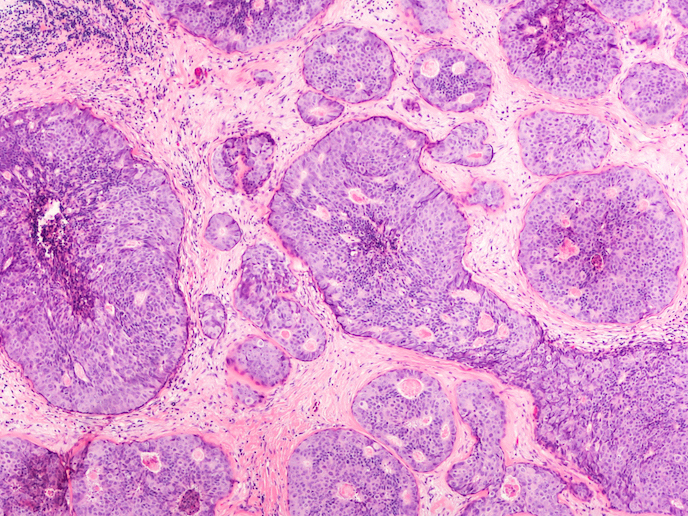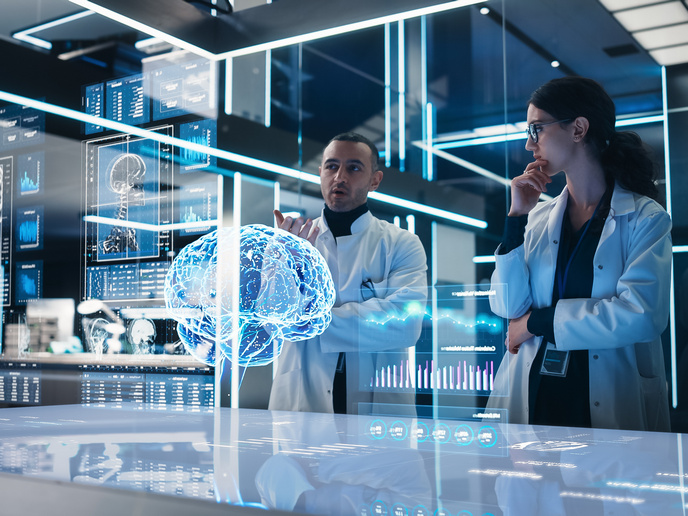AI software helps make timely, potentially life-saving diagnoses
Cancer cases are on the rise worldwide, and the best line of defence is accurate and timely diagnosis. But diagnostic imaging and biopsies take time and are dependent on the knowledge, experience and availability of trained radiologists and pathologists – all of which are in short supply. Luckily, emerging technologies such as artificial intelligence (AI) and deep learning can help bridge the gap between biopsy and diagnosis. For example, the EU-funded AIPACA project has developed AI-based software capable of analysing biopsy slides within mere seconds, accurately identifying tumour regions and quantifying tumour biomarkers. “By significantly reducing biopsy processing time, our AI solution offers pathologists a powerful and reliable clinical tool for making timely, accurate and potentially life-saving diagnoses,” says Felix Faber, founder and CEO of Mindpeak(opens in new window), the project’s lead partner.
AI software improves diagnostic accuracy
Mindpeak developed its AI software to assist pathologists in the diagnostic assessment of cancer progression and features based on immunohistochemistry (IHC), a laboratory method that uses antibodies to check for certain biomarkers in a sample of tissue. In the case of the AIPACA solution, those biomarkers include Ki-67, ER, PR and HER2. “The diagnostic accuracy of our AI software for these biomarkers in breast tissue is comparable to the accuracy of the very best human pathologists,” explains Faber. The software also reliably delivers very accurate results across different laboratory environments. “In a large variability study, we demonstrated the non-inferiority for human readers with AI vs readers working alone,” he explains. “This finding stands regardless of the stainers, scanners and biomarkers being used, thus confirming the robustness of our AI software.” The software is based on current medical guidelines and is CE-marked(opens in new window) for diagnostic purposes in routine clinical practice. “Our software is already being used in clinical practice in parts of the EU and for research purposes in the United States,” adds Faber.
Innovation made possible thanks to EU funding
According to Faber, this success was made possible thanks to the support of the AIPACA project. “Mindpeak’s user interface, the AI Console, was developed entirely within the AIPACA project and in collaboration with scientists and pathologists from around the world,” he says. The AI Console is stand-alone software used for interactive visual examination of digital images of histopathological slides in combination with additional information. “It allows the user to interactively change the magnification of the image display, pan and rotate within the histopathology image, and draw and save regions of interest for diagnosis and tracing, as well as display clinical scores,” remarks Faber. The AI Console received its CE mark and successfully passed usability tests with experienced and renowned pathologists during the project.
A reliable, highly accurate and cost-effective solution
With the support of EU funding, pathologists now have a reliable, highly accurate and cost-effective solution to help them diagnose cancer faster. As a result, more patients stand to benefit from earlier diagnosis and treatment, which could help improve their prognosis and prolong their life expectancy. “The AIPACA project allowed Mindpeak to make a significant contribution to the digitisation of the clinical routine in general and pathology specifically by matching the right patients to the right treatments quickly,” concludes Faber. The knowledge gained during the project is now being used to guide the development of software solutions for other types of cancer and to develop highly effective drugs for curing the disease.







